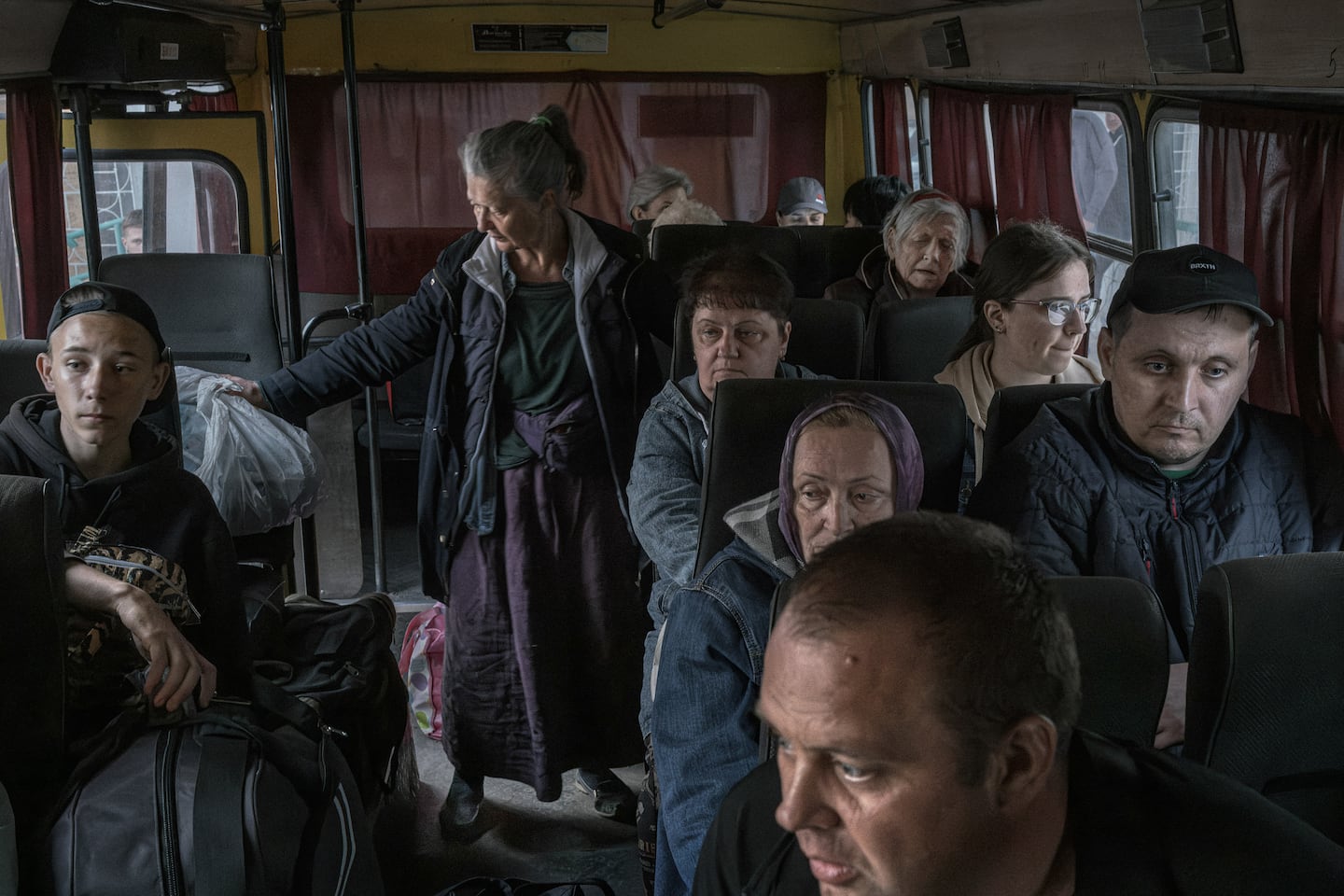My mother told me.
I wasn’t there. I couldn’t be. He drew his last breath in Donetsk — my hometown, now occupied by Russia. The front line, blazing and thundering, has divided us. A line that cut through Ukraine like a wound, dividing not just land but lives.
My father considered himself Russian. I consider myself Ukrainian. It didn’t stop me from being his son or him from being my dad. But it did prevent me — a writer who has been critical of Russia — from safely traveling home. We would hug if we met, yet we didn’t even say goodbye.
This isn’t a unique story. It’s just mine. Across Ukraine, hundreds of thousands — perhaps millions — of people have lived some version of it. Families divided. Children cut off from their parents. Lives torn in half. The front line respects neither geography nor intimacy. It slices through us all mercilessly.
In 2014, when Russia seized Crimea and Donbas, over a million Ukrainians became refugees.
My family was among them, leaving behind friends, relatives, and parents. Then it seemed temporary, but it dragged on for years. We had to begin again — with just two suitcases and a stack of documents, though we only grabbed half of the important documents when we left. Looking back, those were our last cloudless times.
Then came 2022. President Vladimir Putin of Russia escalated the conflict that began in 2014 into a full-scale invasion. Shelling. Explosions. Tank columns. Civilians shot in the street. About 7 million Ukrainians fled abroad; nearly 4 million more became internally displaced.
Behind those dry statistics are real people: children growing up in foreign languages, families scattered across borders, wives seeing husbands only through video calls.
And those who stayed — too poor to flee, too ill to travel, or too determined to leave — are rarely seen in news reports. But they exist.
Today, my wife and I are used to being “temporarily displaced,” though it feels permanent. We managed to leave Donetsk on the very last train that connected it with the rest of Ukraine in July 2014.
We’re often told: There’s a war on. Be grateful you lost only your home. Be grateful to the Ukrainian government. Be grateful to the American president who now seeks to end the war — perhaps at the cost of our homes, our land, and our future.
But war is not just a thief. It is also a looter. A pillager. Governments track military costs in spreadsheets. But what of the human cost that doesn’t show up in ledgers?
I saw dozens of refugees when my family wandered across Poland in the early months of the war. The United Nations offered $600 for a family of four, but only for three months.
As of early 2024, Western nations had provided about $400 billion in aid to Ukraine, including more than $120 billion in military assistance. But how much of that helped a refugee child enroll in permanent school?
The European Union has extended temporary protection through 2026. But what happens when the world’s welcome expires?
More than a million Ukrainians have returned — some to visit, some to stay. They prefer life under rockets to life in exile. Their nerves are frayed by air raid alarms, their former jobs are lost, and their social benefits are minimal.
Ukraine spends roughly $136 million per day on the war. Social spending is nearly five times less. That’s why internally displaced persons live like foreigners in their own country.
To be a refugee in your own land is to endure a second exile.
Who will ensure these millions find a roof over their heads — not just today but tomorrow? With Ukraine’s external debt at $171.7 billion, the government likely can’t. That means the burden falls to the West, from humanitarian aid to refugee protection. But the United States doesn’t seem ready to extend much more help.
President Trump has proposed a cease-fire plan that would give Russia most of the Ukrainian territory it has seized, an unthinkable concession for Kyiv. He seems more comfortable blaming President Volodymyr Zelensky of Ukraine for the war than to confront the actual aggressor, Putin. Though cease-fire negotiations continue, peace still seems far away.
After my father’s death, my mother was left alone. She recently turned 90. On the phone, we console each other: We’ll meet again. The war will end. I’ll hug her and visit my father’s grave.
The last thing my father said to me, when he could still talk, was: “Come home, son.”
Our homecoming demands more than an end to war. It demands recognition from politicians of the grieving, the displaced, the orphaned, the traumatized. It demands the universal condemnation of Russia’s war crimes and that Ukraine’s fate not become a footnote in geopolitical strategy.
Because were that to happen, war would win. Even after it had ended.
